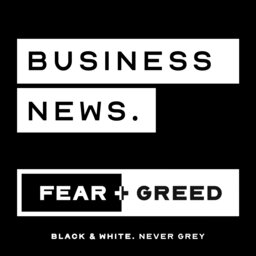Albanese and Dutton campaigning, super needs to look after oldies, NYC solves traffic snarls
Monday 27 January 2025
Prime Minister Anthony Albanese and Opposition Leader Peter Dutton move into campaign mode ahead of a federal poll tipped to be as soon as April.
And more, including:
- Crypto industry pushes back against the Trump memecoins
- Australia’s superannuation funds under pressure over helping people after they retire.
- And how New York is solving its traffic snarls
Plus don’t miss the latest episode of How Do They Afford That? - the six questions financial planners are asked. Get the episode from APPLE, SPOTIFY, or anywhere you listen to podcasts.
In 1 playlist(s)
FEAR & GREED | Business News
Daily business news for people who make their own decisions, with business journalist Sean Aylmer an…Social links
Follow podcast
Recent clips

Gen X’s 'dirty fantasy': the four-day work week
06:12

Dividend investing: How to pick quality income stocks
06:07

Hate legislation on shaky ground; air traffic chaos; Hollywood’s highest grossing actor
15:36
 FEAR & GREED | Business News
FEAR & GREED | Business News